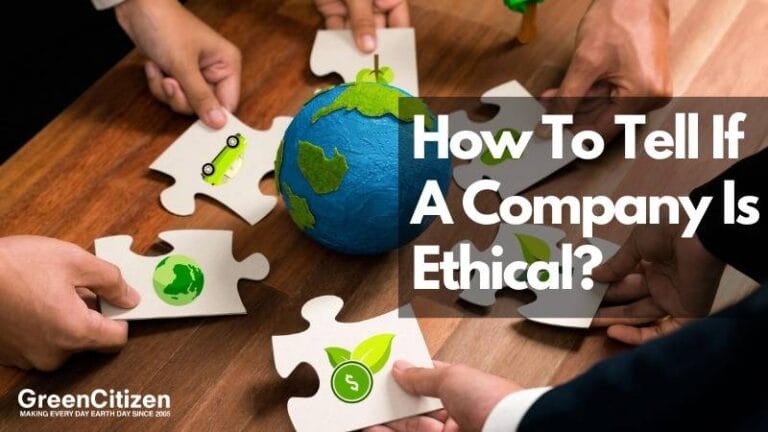Business ethics are more important than ever. Consumers today are savvy and demand ethical business practices. They want to support companies that match their values.
This blog will help you identify if a company is truly ethical. From transparency to fair labor practices, we’ve got you covered.
Dive in and learn how to make smart choices about the businesses you support. Being an ethical company isn’t just trendy; it’s about doing the right thing.
Six Ways to Tell if a Company is Ethical
1. Transparency
Transparency is crucial for an ethical company. It shows corporate accountability and builds trust.
Ethical brands demonstrate this with regular reporting and clear communication. They don’t hide things and welcome feedback. You can spot ethical transparency when companies openly share their successes and failures.
They make it easy for you to see what’s happening behind the scenes. This honesty sets ethical brands apart. Transparency in business isn’t just a nice-to-have; it’s essential.
Next time you’re deciding who to support, choose those who keep things clear and open.
2. Work Environment
Fair labor practices are key to a company’s ethics. Imagine a workplace where workers are paid fairly, feel safe, and have their rights respected. Ethical labor standards are all about this.
Think of a friend who loves their job because they feel valued and safe. An ethical company ensures fair pay, healthy working conditions, and respect for workers’ rights. This creates a positive atmosphere.
Take Patagonia, for example. They are known for their commitment to fair wages and safe working environments. They also respect workers’ rights, creating a community within the workplace.
Companies that prioritize these practices show they truly value their employees. It’s like being in a workplace that feels more like a supportive community.
Before you choose a brand next time, consider how it treats its employees. Ethical labor standards are a clear sign of a company’s true values.

3. Certifications
Certifications and awards can highlight a company’s ethical practices. They act as a seal of approval for ethical brands. Look for business ethics certifications like Fair Trade, B Corp, and ISO 26000. These show a commitment to fair wages, safe working conditions, and sustainability.
For instance, Ben & Jerry’s is a B Corp certified company, known for its ethical business practices. They prioritize fair labor standards and sustainability, earning numerous ethical business awards.
Ethical awards, such as the Corporate Social Responsibility Awards, also signify a company’s dedication to doing good. When a company proudly displays these accolades, it’s a good sign. It means they’ve been recognized for their efforts to maintain high ethical standards.
While you’re evaluating a company, check for these certifications and awards. They’re like gold stars for grown-up companies, proving they care about more than just profits. These certifications help tremendously to in order to understand if a company is ethical or not.
4. Product Materials
The materials a company uses in its products matter a lot. Ethical product materials ensure safety for consumers and the planet. Companies should source sustainable materials that are non-toxic and ethically produced.
Imagine buying a shirt made from organic cotton. It feels good to wear and is kind to the environment. Ethical brands prioritize sustainable materials and avoid harmful chemicals. They focus on non-toxic products that are safe for everyone.
When choosing products, look for companies that use ethical product materials. This shows they are committed to doing the right thing for both people and the planet.
5. Packaging

Another way to know if a company is ethical is their packaging. A company’s packaging choices say a lot about its ethics. Eco-friendly packaging helps cut down on waste and pollution. Sustainable options, like biodegradable or compostable materials, are better for the planet. Recyclable packaging ensures materials get reused instead of ending up in landfills.
Think about unboxing a new gadget wrapped in minimal, recyclable packaging. It’s not only easier to dispose of but also feels good knowing it’s eco-friendly. Ethical brands also focus on reducing their packaging footprint. They pick sustainable materials that are kind to the environment.
Next time you choose a brand, be sure to check out their packaging. Eco-friendly, recyclable, and minimal packaging choices show a genuine commitment to sustainability. Supporting these brands means you’re backing a healthier planet and better business practices.
6. Sustainable Initiatives
A company’s efforts in sustainable initiatives show its ethics. Sustainable business initiatives, like reducing carbon footprint, proper waste management, and supporting renewable energy, show a genuine effort to protect the environment. For example, IKEA uses solar panels and wind energy to power its stores.
Recycling or repurposing products and proper waste disposal are also essential. Think of companies that turn old products into new ones instead of discarding them. This practice reduces waste and promotes sustainability.
When evaluating a company’s ethics, check its sustainable practices. These actions show their commitment to corporate sustainability and environmental responsibility. Choosing brands with strong, sustainable initiatives means backing businesses that care about the planet.
Some Things to Keep in Mind

One major pitfall to avoid is greenwashing, where companies falsely portray themselves as environmentally friendly. It’s like putting a green label on a product without making any real eco-friendly changes.
This practice is problematic for several reasons.
- It misleads consumers. People want to support sustainable brands, but greenwashing makes it hard to tell which companies are truly ethical. You might think you're making a positive impact, but you could be supporting harmful practices instead.
- Greenwashing undermines genuine sustainability efforts. Companies that truly invest in eco-friendly practices get overshadowed by those using deceptive marketing tactics. Look for genuine efforts, not just marketing gimmicks.
- It erodes trust. When you discover you’ve been misled, it’ll damage your trust in brands and eco-friendly claims in general. This can lead to skepticism and a lack of support for truly sustainable initiatives.
By learning to recognize greenwashing, you can avoid these pitfalls. Look for companies that provide clear, verifiable information about their sustainability efforts. This way, you support brands that are genuinely committed to protecting the environment.
